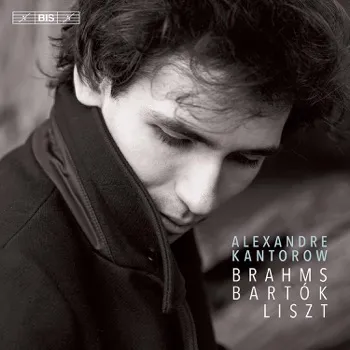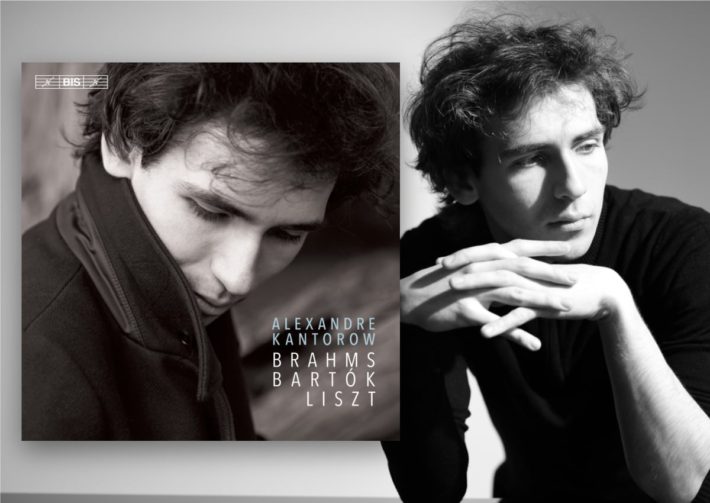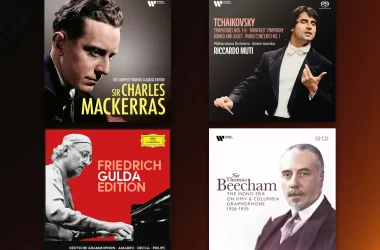This album finds Tchaikovsky Competition’s gold medalist Alexandre Kantorow playing intriguing program; the longer works here are not often performed and are less than an ideal representation of their composers. Some of the works pay homage to each other, intentional or incidental, and are looking to the past no less than to the future.

Brahms’s first Rhapsody, which opens the program, is a mature Brahms, yet the performance here is one of the most tempestuous in recent memory – Kantorow incorporates rhythmic flexibility in introspective segments and dramatic peaks, as if everything almost falls apart (3’35, and again in 8’40). This is a much less cautious than the “classical” Brahms playing heard in recent years from pianists like Jonathan Plowright (on the same label), in a good sense.
Kantorow gives a good case for playing Brahms’ “second” Piano Sonata (actually composed before his Piano Sonata No. 1). This is one of the works first heard by the Schumann’s in Brahms’ visit to Düsseldorf in the 1850s. At its best moments, It’s unmistakable Brahms, with lovely melodies and highly effective piano writing, but the final movement goes on, and the slow movement is less successful than that of the third Piano Sonata, Op. 5.
Compared with Richter and Katchen, two of the past pianist who championed this Sonata on record, Kantorow is more free, seeing it as a true 19th-century romantic piece. This view was also shared by Barry Douglas in his excellent Brahms cycle for Chandos. I particularly liked Kantorow’s treatment to the Scherzo, where the dark, dance-like segments are wisely contrasted with the retrospective trio.
Bartók spent a lot of time with his “Rhapsody in A Minor” (Op. 1), and it exists in a version for piano and orchestra as well as in shorter form. Here we have the full, 20 minutes version. The piece contains some elements reminiscent of the Op. 79 Rhapsody which opens the album, but it also shares some historical perspective with the Brahms Sonata – both works contain an echo of Liszt while looking ahead to great things to come from their respected composers.
This is a persuasive and serious performance of this long piece – full of tension and impressive virtuosity in the piece’s second half. Kantorow’s left-hand does wonders in creating a dramatic effect, with deep, glowing bass and brilliant arpeggios that elevate the work from its superficial virtuosity (16’30).
Kantorow is very proficient in the Liszt Hungarian Rhapsody No. 11, which closes the album, again displaying his impressive technical abilities. Yet I sometimes missed the cheeky charm that one can hear from famous Lisztanians as Cziffra and Szidon. An interesting program, then, with less-often performed pieces played with a persuasive conviction.
Recommended Comparisons
Katchen | Douglas | Cziffra | Plowright
Brahms – Rhapsody in B Minor, Op. 79 No. 1, Piano Sonata No. 2, Op. 2
Bartók – Rhapsody, Op. 1 (Sz. 26)
Liszt Hungarian Rhapsody No. 11
Alexandre Kantorow – Piano
BIS records, hybrid SACD BIS-2380




















